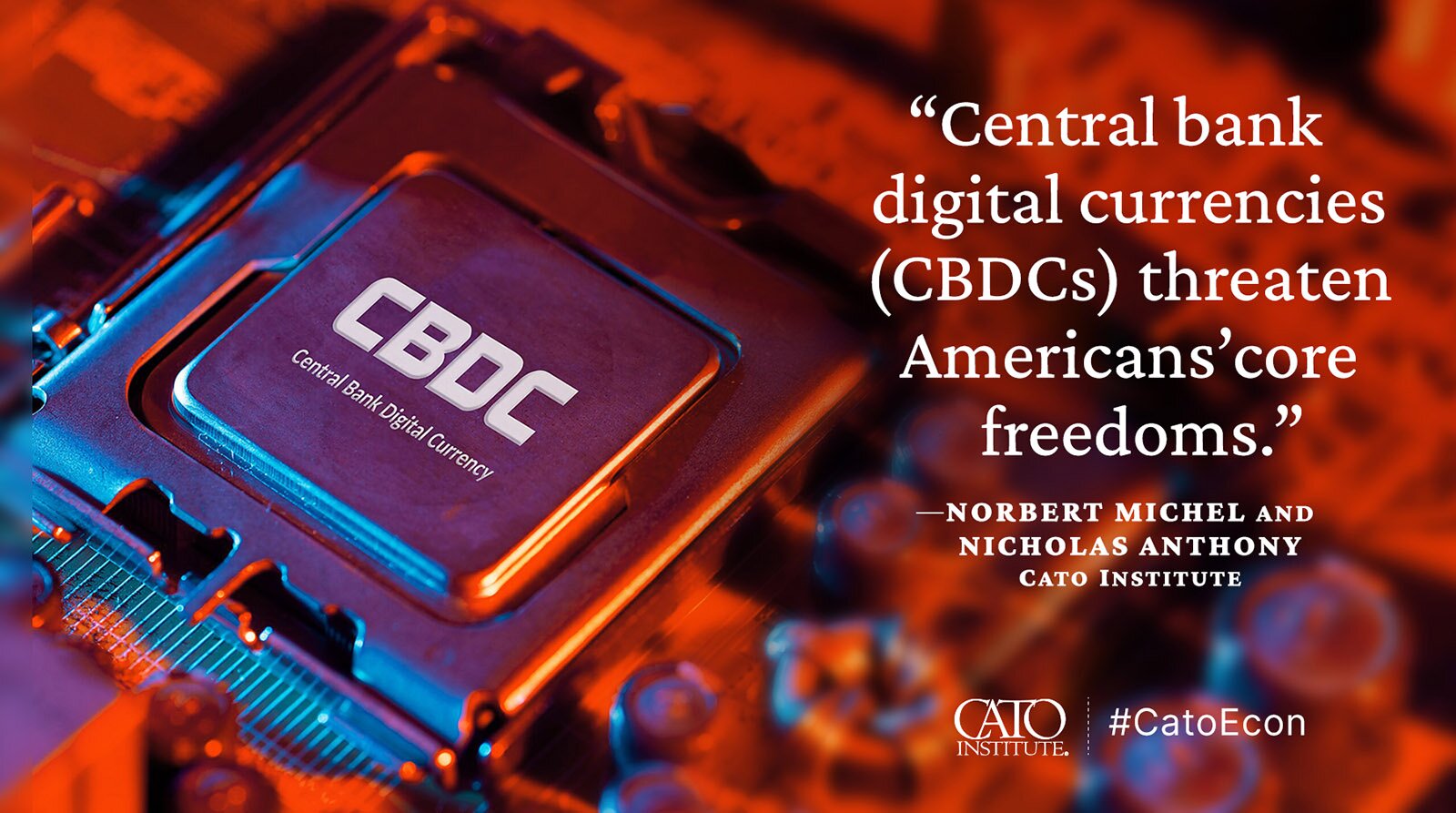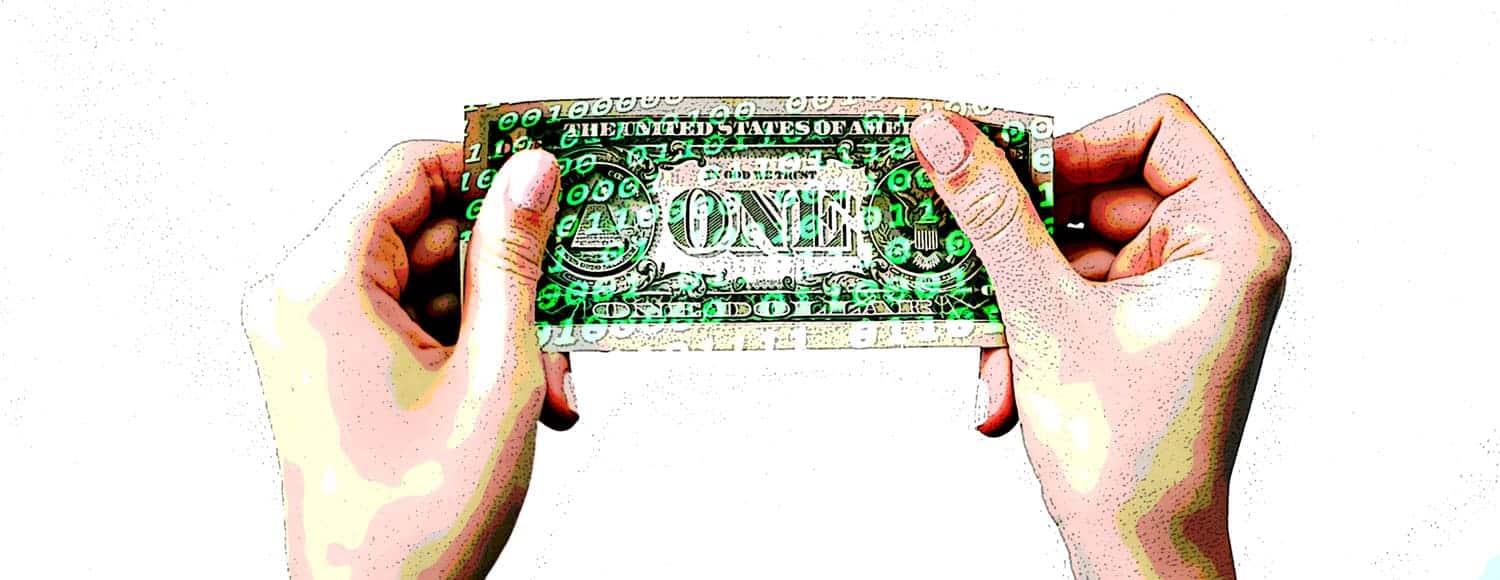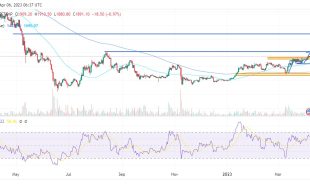Join Our Telegram channel to stay up to date on breaking news coverage
Citizens’ privacy may be at risk with the inception of central bank digital currencies, believes a Washington D.C.-based think tank. Individuals, businesses and organizations could suffer from the decision.
Cato Institute Report Warns of Dangers of CBDCs for Privacy and Free Markets
As the world moves towards digital currencies, the government of the United States is considering issuing a central bank digital currency (CBDC). However, a recent report by the Cato Institute highlights the potential dangers of such a move. Cato Institute is an American libertarian think tank located in Washington, D.C.
The report argues that a CBDC would undermine the private sector and jeopardize the privacy and fundamental rights of citizens.
According to the report, a government-issued CBDC would pose significant risks to individual privacy, free markets, and cybersecurity. It would be easier for the government to track and control transactions, potentially leading to widespread surveillance.

The authors of the report further argue that the private sector is less centralized than the government, making it less vulnerable to breaches. If a private financial institution is breached, only a fraction of citizens would be affected, while a breach in a government agency could put all Americans at risk.
The report argues that CBDCs should not have a place in the American economy and that the Federal Reserve and the Department of Treasury should be prohibited from issuing one. Such a move would be a threat to the free market and undermine individual privacy.
With the U.S. dollar serving as the primary currency for global financial liabilities and claims, the privacy risks posed by a CBDC could extend beyond the United States. While the Federal Reserve’s FedNow service is set to launch in July, it remains unclear if and when a CBDC will be issued.
Apart from the potential benefits of creating a CBDC, the issue remains controversial on Capitol Hill. In particular, Republican Party majority whip Tom Emmer has expressed concern that a government-issued digital currency could be harmful to both individual users and political opponents of the government.
The potential dangers of a government-issued CBDC cannot be overstated. While digital currencies have their advantages, a CBDC could undermine the private sector, threaten citizen privacy, and destabilize the free market, in addition to compromising the whole concept of decentralization which stands as the fundamental value proposition of cryptocurrencies.
The U.S. government must consider these risks carefully before making any decisions regarding the issuance of a CBDC.
Report Challenges Advantages of Central Bank Digital Currencies (CBDCs)
A recent report has challenged the advantages that central bank digital currencies (CBDCs) will offer, insisting that they do not offer unique or additional benefits compared to existing private sector alternatives.
The proponents of CBDCs claim that they could enhance financial inclusion, accelerate payment timings, safeguard the dollar’s status as a global reserve currency, and help implement a better monetary policy.
The authors argue that the government shouldn’t try to trample new financial protections but focus on bettering the ones already present. This will improve the implementation of monetary policy and therefore, defend the position of the dollar internationally.
Stablecoins and other forms of private-sector cryptocurrencies already provide innovative solutions for financial inclusion and faster payments, according to the report. The authors contend that CBDCs would fail to offer any unique benefits, and they criticize the fact that the government could use them to infringe on the privacy of citizens.
This viewpoint is shared by some U.S. Republicans, who have expressed concern about the potential risks of a “surveillance-style CBDC”.
During the Cato Institute event, Congressman Emmer expressed his concerns regarding the potential risks associated with CBDCs. Meanwhile, legislative proposals introduced by Florida Governor Ron DeSantis and Texas Senator Ted Cruz aim to prevent the introduction of a digital dollar for retail purposes.
Despite these concerns, the Federal Reserve has continued to explore the possibility of a CBDC. Fed Chair Jerome Powell recently stated that the central bank is in the process of conducting research and analysis on CBDCs, and will be publishing a discussion paper on the topic this summer.
To console those skeptical of the move, Powell has emphasized the importance of proceeding with caution and ensuring that a CBDC would not undermine the existing financial system or infringe on citizens’ privacy.
What Will the US CBDC Look Like?
A central bank digital currency (CBDC) is a digital or electronic form of a country’s fiat currency that acts as a legal tender and is regulated by the government. In the US, the Federal Reserve would issue the CBDC. The US CBDC would supplement existing forms of payment and offer a way to carry out cross-border transactions in a fast and efficient manner.
To launch a US CBDC, the Federal Reserve must ensure that it is safe, accessible, without any risks of liquidity or credit, protective of the privacy of parties involved, intermediated, easily transferable, and verified by identity.
The benefits of a US CBDC include safely meeting future needs for payment services, improving cross-border payments, and reducing transaction and borrowing costs. The disadvantages include compromising the safety and stability of the financial system, lessening the effectiveness of the monetary policy, and threatening consumers’ privacy rights.
If a government-issued digital currency is to come into existence, the implementation of a US Central Bank Digital Currency (CBDC) must offer advantages that surpass its associated drawbacks and hazards. Furthermore, it should serve as an addition to, rather than a substitute for, existing monetary systems and financial service channels.
In addition to this, a CBDC must prioritize safeguarding consumer confidentiality and preventing illicit activities. Lastly, the successful adoption of a US CBDC requires support from key stakeholders to ensure its sustainability and longevity.
The year 2022 saw the release of a regulatory framework by the White House that aimed to explore the potential of digital assets, including the digital dollar. Even the Federal Reserve recognizes the technological advancements of digital assets as a form of currency. Nonetheless, the Fed cautions that these advancements come with risks that may leave customers susceptible to fraudulent activities and theft.
The launch of a US CBDC is under discussion, and policymakers and the Federal Reserve are examining the benefits and risks of a CBDC. While there has been a lot of criticism against the implementation of these currencies, if they are to be launched, it won’t take long for nations to join and release their own version of CBDCs.
Read More:
Best Wallet - Diversify Your Crypto Portfolio
- Easy to Use, Feature-Driven Crypto Wallet
- Get Early Access to Upcoming Token ICOs
- Multi-Chain, Multi-Wallet, Non-Custodial
- Now On App Store, Google Play
- Stake To Earn Native Token $BEST
- 250,000+ Monthly Active Users
Join Our Telegram channel to stay up to date on breaking news coverage




